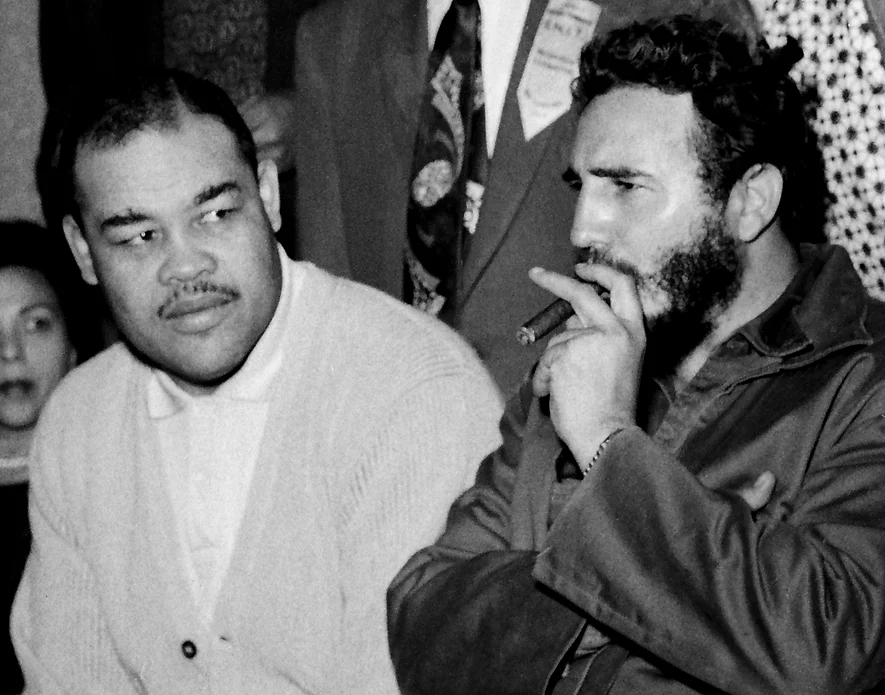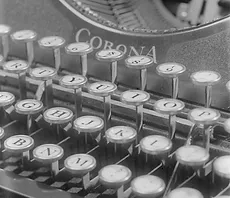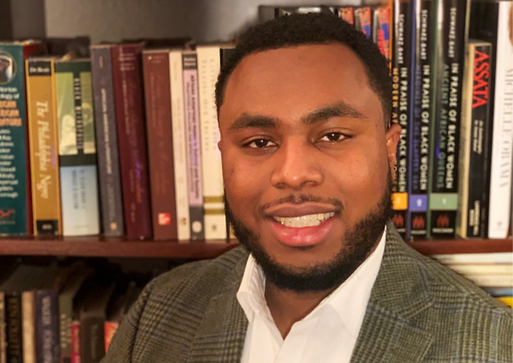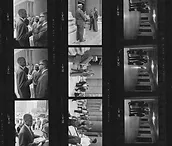Photo by Robert Abbott Sengstacke/Archive Photos/Getty Images
In 1959, Fidel Castro led a successful revolution in Cuba, overthrowing the rule of Fulgencio Batista. As Castro turned Cuba into the Western hemisphere’s first communist state, he also made the bold promise of uprooting racial discrimination in Cuban society. Literacy campaigns, agrarian land reforms, and increased employment opportunities were initiatives extended to Afro-Cubans as a way to transform Cuba into an “anti-racist” country.
While the United States did not take kindly to the creation of a communist state in its backyard, African American opinions about communist Cuba were rather different. African Americans were already engaged in their own fight against American racism and were particularly interested in a nation whose national leaders were vocal about undoing systemic racism.
Several months before Castro made his historic trip to Harlem to meet with Malcolm X at the Hotel Theresa, he courted another prominent African American figure: boxing legend Joe “The Brown Bomber” Louis.
In January 1960, Louis traveled to Cuba to speak with Castro about developing an avenue for African American tourism in Cuba. This meeting was opportune for both parties. African Americans faced severe racial discrimination when traveling in the United States, especially in the Southern states.
Conversely, Castro had kicked out major U.S. hotels and casinos from Cuba and was searching for another way to fill the tourist void. At their meeting, Castro and Louis discussed plans for middle-class African Americans to travel to Cuba and experience first-hand the “anti-racist” society that Castro was shaping.
Unfortunately, the 1962 embargo enacted by President John F. Kennedy snuffed out any plans of establishing an African American travel network with Cuba. However, that did not sever the transnational relationship between African Americans and communist Cuba.
The Black Panther Party (BPP) was founded in 1966, in East Oakland, California. A self-help organization committed to Black self-determination, the BPP looked to communist China and communist Cuba as models for bringing revolutionary change in the United States. The Cuban government also paid attention to the BPP.
This sign in Havana in 1971 reads “Freedom for Angela Davis.” Davis was a prominent Black Panther and her trial and subsequent imprisonment garnered international attention. Two individuals who appear to be of African descent walk in front of the sign as a reminder that American racial politics were visible to everyday Afro Cubans.

Photo by Rudy Suwara/Bettmann Collection/Getty Images
In 1984, civil rights activist Jesse Jackson was a presidential candidate for the Democratic Party. To bolster his knowledge of international affairs, Jackson made the trip to Havana to meet with Fidel Castro, 24 years after Joe Louis had visited Cuba.
The meeting between Jackson and Fidel culminated in Jackson securing the freedom of 26 Cuban political prisoners and 22 American citizens, which Washington thought was a near impossible task. Jackson’s success led him to denounce U.S. policy towards Cuba when he told reporters “A no-talk policy does not work. We must talk with the Cubans.”
The put Jackson at odds with many Americans and certainly with the Reagan Administration, which pursued an aggressive anti-communist agenda in Latin America broadly and against Cuba in particular.

Photo by Bettmann Collection/Getty Images
Jackson secured the freedom of people that the Castro administration had labelled as “terrorists” and “enemies of the state.” Ironically, in the same year, Cuba offered political asylum to Black Panther member, Assata Shakur, whom the United States had deemed “an enemy of the state.”
Since the 1959 Cuban Revolution, the United States has had a fraught relationship with Cuba. As these images remind us, however, African Americans have sometimes viewed Cuba differently. It has been a more complicated relationship as Cuba represented a nation fighting to dismantle a legacy of systemic racism, never mind that it was a communist country.

Learn more:
Frank Andre Guridy, Forging Diaspora: Afro Cubans and African Americans in a World of Empire and Jim Crow, 2010
Devyn Spence Benson, Antiracism in Cuba: The Unfinished Revolution, University of North Carolina Press, 2016.





